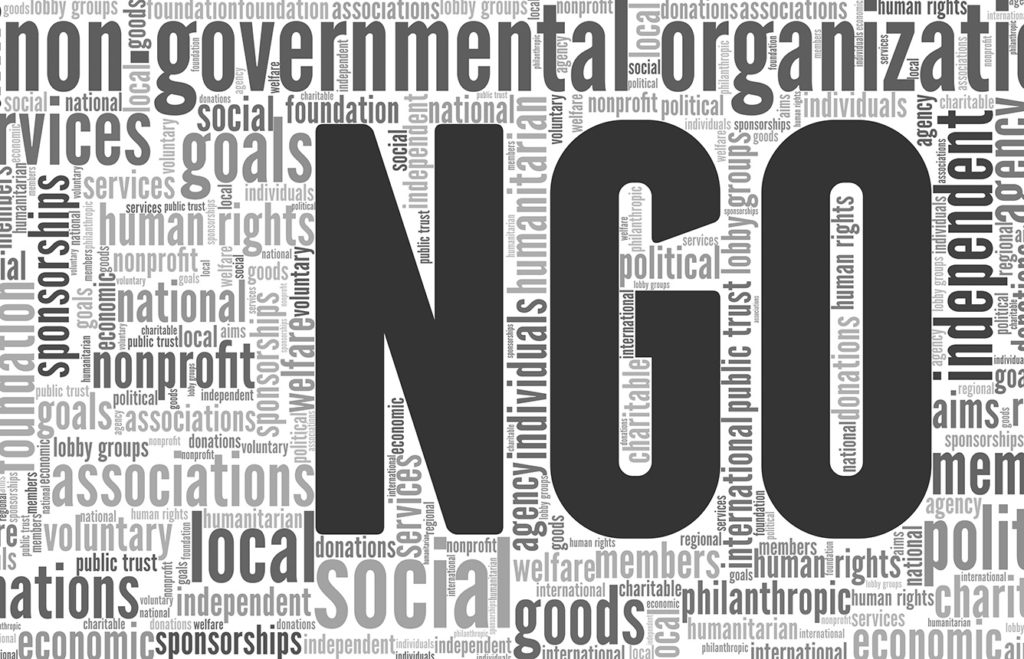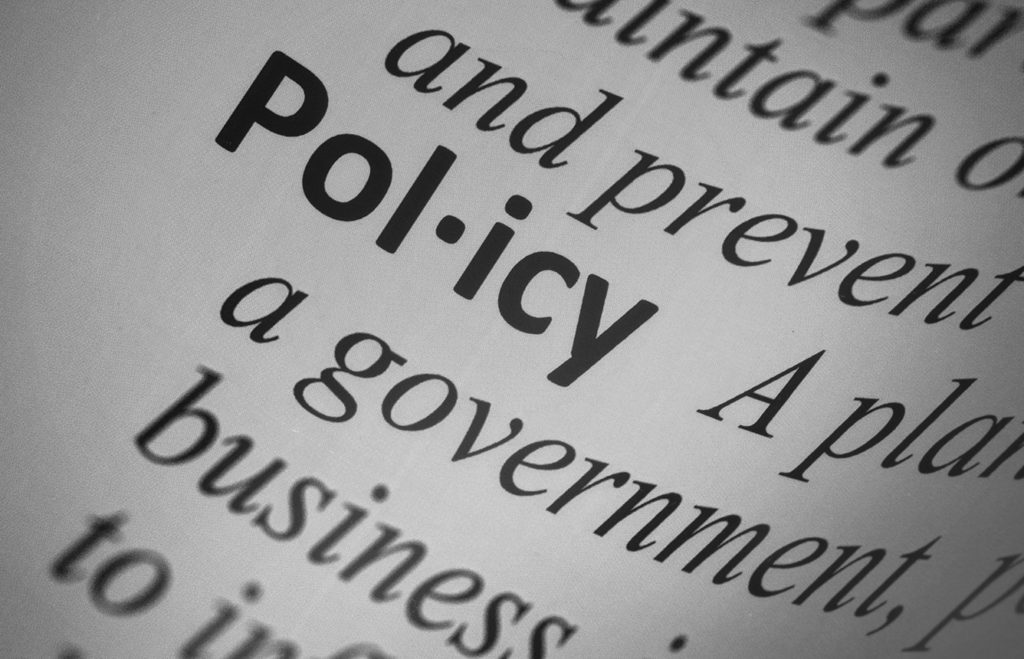View Public Posts
Below you will find reflections from policy engaged scholars, many from our Ethical Engagement Panel, about how they have managed ethically challenging moments. You can browse by author or by issue or engagement type. As you scroll through issue and engagement types, you can also find questions and answers posed through our anonymous question portal. Anyone can ask an anonymous question and our Ethical Engagement Panel responds, also anonymously. We hope these serve as resources to assist academics in reflecting on and improving their own engagement practices.
Reflections
Teaching Ethical Engagement: Media, Corruption, and Waning Accountability in Hungary
How to help students formulate possible policy responses to undermine Fidesz’s authoritarian grip on power in Hungary (with lessons for other authoritarian contexts).
Background and policy setting:In offering the course to 24 graduate students at Korbel, I had two main partners: József Péter Martin, executive director of Transparency International, Hungary, and Dóra Piroska, professor at Central European
Issue Areas: Identity PoliticsType of Engagement: Close collaboration with policymakers
Addressing Uncomfortable Recommendations: Perpetrators and Person-First Language
This reflection is relevant to people engaging with government officials, policymakers, practitioners, educators, and those who experienced atrocities.
The Challenge- How to advocate for policy recommendations that, at face value, cause discomfort.
Dr. Nyseth Nzitatira (aka Hollie Nyseth Brehm) obtained her Ph.D. in Sociology at the University of Minnesota in 2014. She is
Issue Areas: DDR / Recovering from War, Traditional Peace and SecurityType of Engagement: Close collaboration with policymakers
Defining “Enduring Strategic Defeat”: Ethical Dilemmas or Security Dilemmas?
Introductory Note: Jesse Driscoll is an associate professor of political science at the University of California San Diego (UCSD). He is an area specialist in Central Asia, the Causcasus, and the Russian-speaking world. In 2022, he took a year's leave from UCSD to serve in the Plans division of the Joint Staff (J5, Europe/NATO/Russia Division). The following narrative includes his
Issue Areas: Military Issues, Traditional Peace and SecurityType of Engagement: Embedded work in policy organizations
The U.S. Role In and Foreign Policy Debate On Afghanistan
The challenges:
- Present recommendations on the U.S. role in Afghanistan along with empirically informed enumeration of various potential decisions and outcomes
- Bring a different range of voices and perspectives into the U.S. foreign policy debate on Afghanistan
- Grapple with what to do with knowledge production that is unused in policy creation
The background and policy setting:
Dipali
Issue Areas: Traditional Peace and Security, War / Civil War / Violent ActorsType of Engagement: Close collaboration with policymakers
Navigating Ethical Complexity and Contracting in Multi-Stakeholder Projects
The challenges:
- Balancing the desire to collaborate with / provide analytical support to a government agency on a matter of crucial national and human security importance, with the need to maintain institutional and analytical autonomy in our own academic-practitioner interactions.
- Managing expectations by practitioners / policymakers about what type of analysis could be reasonably and ethically produced under
Issue Areas: DDR / Recovering from WarType of Engagement: Close collaboration with policymakers
“Just War” Debates and Evolving Uses of Force
The challenges:
- Moving beyond academic critique and arm’s length critiques of defense policy from a “just war” perspective to discussions within military circles based on a more interdisciplinary perspective
- Engaging with future peace and security policymakers to update the “moral vocabulary” around the use of force to take into account the new dilemmas of force short of war,
Issue Areas: Military Issues, Traditional Peace and SecurityType of Engagement: Arms length writing for policy audiences
Ethical Concerns on a Research Project
The challenges:
- How to decide when to remove oneself from a research project due to ethical concerns
- How to informally report on policy processes and retain policy relevance even while disengaging from a specific project
The background and policy setting:
Parkinson earned her Ph.D. in Political Science from the University of Chicago in 2013. She researches organizational
Issue Areas: Corporate / NGO Engagement, Traditional Peace and SecurityType of Engagement: Close collaboration with policymakers
AI and Machine Learning in the U.S. Military Context
The challenges:
- Determining in which stages of development or deployment of technology to engage with machine learning, using a just war logic
- Choosing to closely engage with a military project as a critical scholar, given that the use of the project may result in the loss of human life
The background and policy setting:
John R. Emery
Issue Areas: Military IssuesType of Engagement: Close collaboration with policymakers
Requests for Revisions That Go Against One’s Findings
The Challenge:
Responding to requests for substantive revisions to consultancy work that go against one’s findings, analysis, or professional opinion
The Background and Policy Setting:
King is a political scientist committed to conducting policy-relevant research related to war, peace, development, and education. Over the past 15 years, alongside her university-based work, she has partnered with a number of governments, non-governmental
Issue Areas: DDR / Recovering from WarType of Engagement: Close collaboration with policymakers, Research ethics
Engaging with Business to Encourage Responsible Behavior
The challenges:
- How to collaborate with business representatives in ways that generate fruitful conversations while maintaining your own integrity and reputation
- How to recommend partnerships with business to solve global problems without damaging the partners' reputation and legitimacy or providing business with a shield against legitimate criticism
Background:
Virginia Haufler is a scholar whose research explores the
Issue Areas: Corporate / NGO Engagement, Traditional Peace and SecurityType of Engagement: Close collaboration with policymakers
Engaging with Authoritarian Regimes in Academic Spaces
The challenge:
- Navigating whether and how to engage with authoritarian regimes in academic spaces
- Lending support to voices situated in authoritarian regimes, without jeopardizing their work and safety
The background and policy setting:
Miles Kahler is a distinguished professor at American University in the fields of international politics and international political economy and Senior Fellow for global
Issue Areas: Power PoliticsType of Engagement: Scholarly action with policy consequences
Engaging With Policymakers
The challenges:
- Identifying and understanding the limits and failures of policy expertise, as well as the role and nature of policy ignorance when engaging with policymakers, while acknowledging that policymakers who work in the field of economics are often under a great deal of pressure to get things right
- Approaching issues as a political economist and a social
Issue Areas: Economic Issues, Larger Systems: Economy, Environment, TechnologyType of Engagement: Arms length writing for policy audiences
Engaging with identity politics during times of heightened polarization
The challenges:
- How to show the value of diversity and intersectionality for policymaking in an era of heightened polarization.
- How to effectively contribute to the policy arena as a black feminist when your expertise is in question from the gate given who you are.
- How to push against situations where your identity brings diversity, but you are
Issue Areas: American/Comparative Public Policy, Identity Politics, Power PoliticsType of Engagement: Close collaboration with policymakers
Navigating Positionality on Racial Profiling by Police
The challenges:
- Navigating positionality in academic work and community engagement on racial profiling by police
- Improving the ethical issues surrounding expert witnesses, public speaking, and training
The background and policy setting:
This reflection was completed by a professor who studies the economics of stratification, considering such topics as equitable growth, gender, and macroeconomic tools. Their primary research
Issue Areas: PolicingType of Engagement: Close collaboration with policymakers
Ethics of Engagement and Sources of Funding
The challenges:
- How to fund policy relevant research without compromising ethics.
- The complexities of managing government funding.
- The dilemmas of private foundation funding.
- The positionality of funding dilemmas.
The background and policy setting:
All scholars need funding for research. Sometimes we need to pay for field research, sometimes for surveys. Sometimes – indeed, often – what we
Issue Areas: Military IssuesType of Engagement: Research ethics
Matrix: writing for policy audiences, economic/tech space
The challenge:
- Providing policy advice on corporate engagement to one’s university from a human rights perspective, while being far removed from corporate decision-making.
- Providing advice to the university as a professor but in a context that operates according to different norms from her teaching and research responsibilities.
The background and policy setting:
Hertel became an academic after
Issue Areas: Corporate / NGO Engagement, Traditional Peace and SecurityType of Engagement: Close collaboration with policymakers
Engaging to Reform U.S. Democracy Promotion
Background and Policy Setting
Catherine Herrold studies how local civic actors—including nongovernmental organizations (NGOs), grassroots groups, and philanthropic foundations—promote economic development and democratic political reform. Her first book project examined how leaders of Egyptian NGOs and foundations understood the concept of “democracy” and promoted it in the wake of the 2011 Arab Spring uprisings. In 2020, Herrold published the
Issue Areas: American/Comparative Public PolicyType of Engagement: Arms length writing for policy audiences
Engaging on the Creation of Cybersecurity Norms
The challenge: How to advise on complex phenomena (creating cybersecurity norms) when the narrative surrounding them is oversimplified.
- In particular, it is difficult to explain to policymakers the intersubjectivity of norms and their sociological basis in a way that is immediately policy relevant.
- The “problem” in question often involves many dimensions not related to norms at all.
Issue Areas: Digital / Cyber Space, Larger Systems: Economy, Environment, TechnologyType of Engagement: Arms length writing for policy audiences, Close collaboration with policymakers
Engaging to Encourage a Global NATO
- How to present novel, controversial ideas without damaging one’s credibility in the policy circles in which one travels
- How to present views that may be considered extreme, with the goal of reframing the policy space on a particular issue
James Goldgeier has worked for many years on NATO. In
Issue Areas: Power PoliticsType of Engagement: Writing for policy audiences with which the scholar is connected
Questions
Date submitted:
Question Summary:
Compensation for meetings/presentations
Engagement Experiences: Writing for policy audiences with which the scholar is connected
Date submitted:
Question Summary:
Passing judgement on organizations that offer me research consultancies ?
Issue Areas: American/Comparative Public Policy, Corporate / NGO Engagement, DDR / Recovering from War, Digital / Cyber Space, Economic Issues, Environment / Climate, Health, Policing, Traditional Peace and SecurityEngagement Experiences: Writing for policy audiences with which the scholar is connected
Date submitted:
Question Summary:
Political Economy Analysis with an International Organization
Issue Areas: Economic IssuesEngagement Experiences: Close collaboration with policymakers
Date submitted:
Question Summary:
Proper disclosure vs. taking credit for behind-the-scenes policy advice
Date submitted:
Question Summary:
Misuse of research by violent actors
Date submitted:
Question Summary:
Is there an ethical issue involved in looking at the pandemic as a research opportunity?
Date submitted:
Question Summary:
Engagement with Trump Administration
Date submitted:
Question Summary:
How much do I need to know to engage media
Date submitted:
Question Summary:
Consulting fees/rates
Date submitted:
Question Summary:
How to be relevant when researching both sides of a conflict
Date submitted:
Question Summary:
Engaging with media from authoritarian regimes
Date submitted:
Question Summary:
Changing assessments based on sponsor sensitivities?
Date submitted:
Question Summary:
Help? I’m trapped in a broom closet!
Date submitted:
Question Summary:
Can I go back to the editors of a website and defend a point?
Date submitted:
Question Summary:
Conflict of interest?










